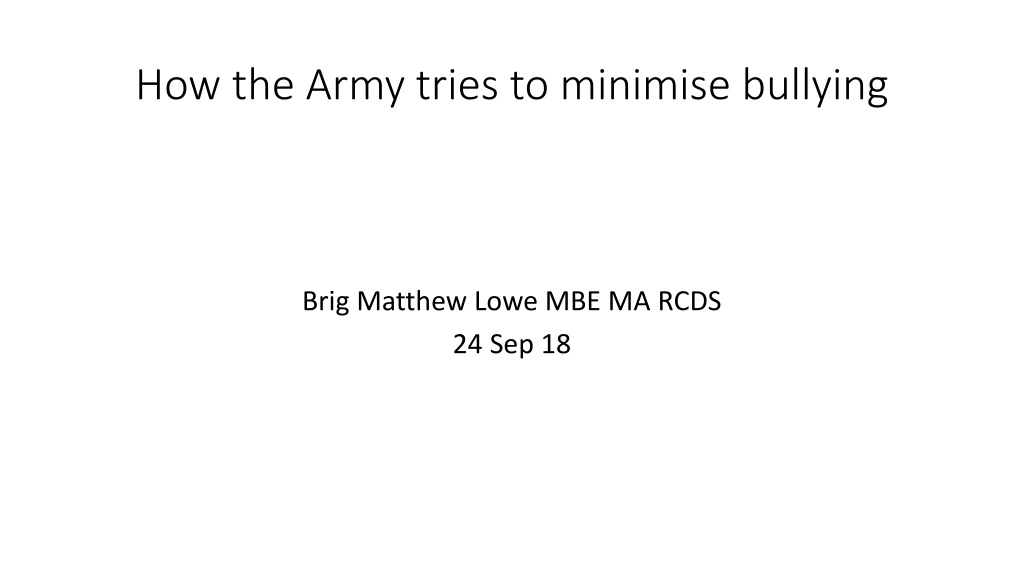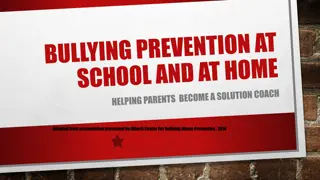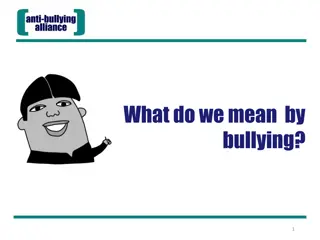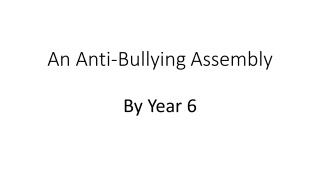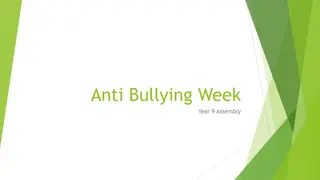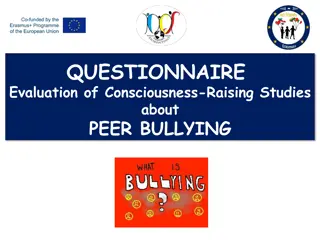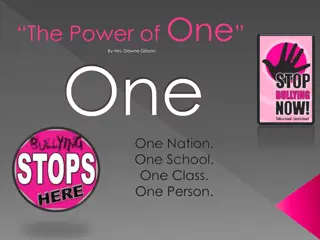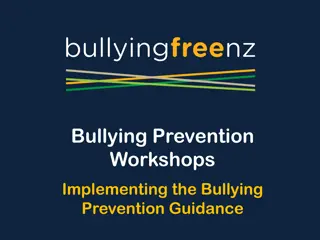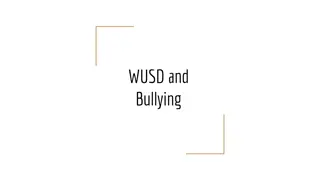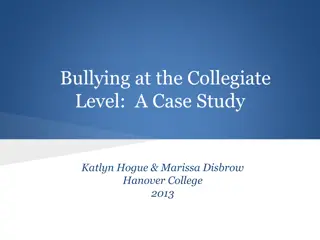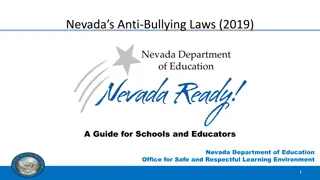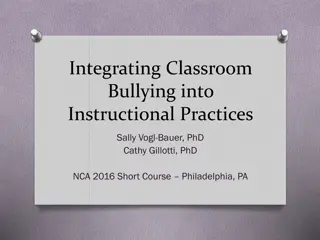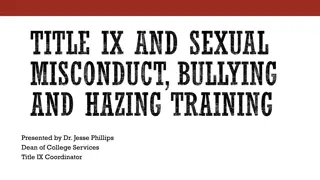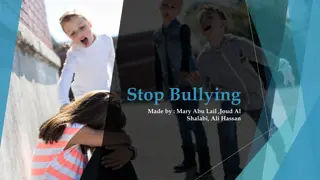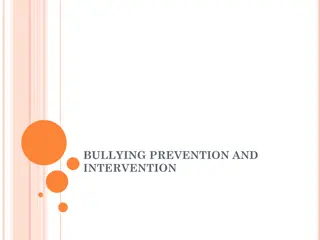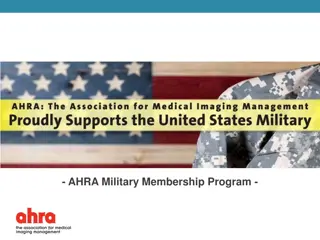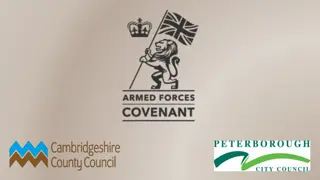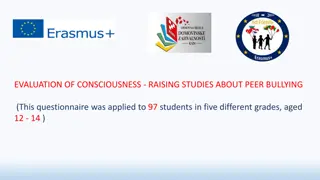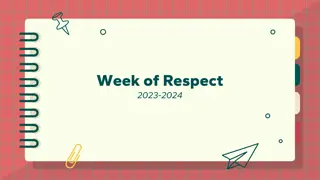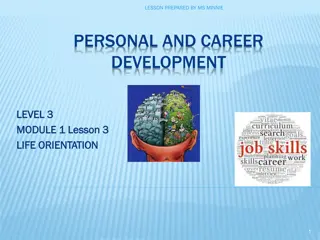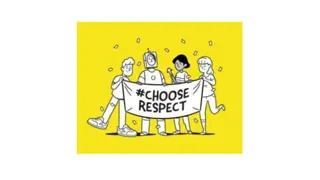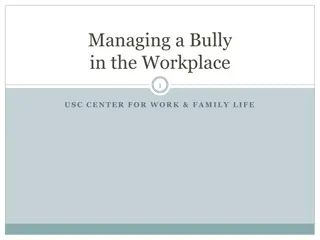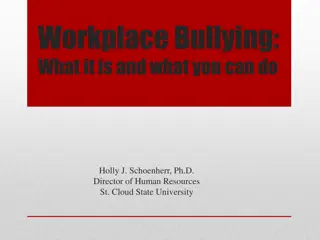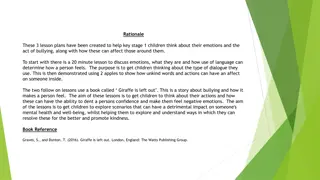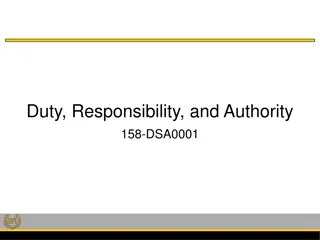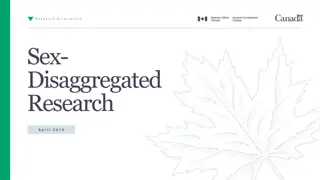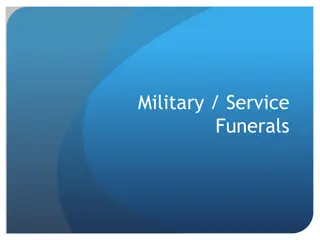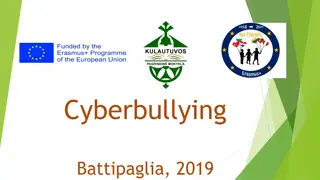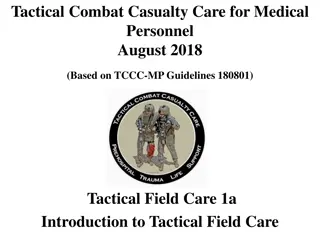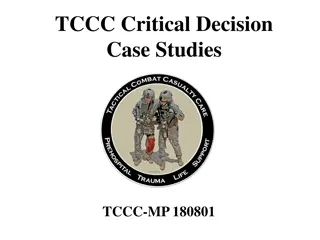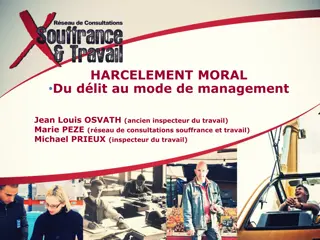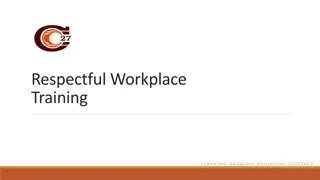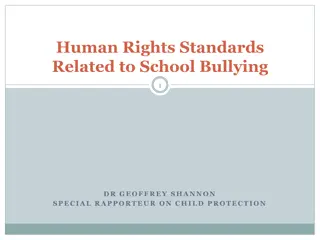Strategies to Combat Bullying in the Military
The Army utilizes a range of systemic tools and practices to minimize bullying, including assurance, trend monitoring, climate assessments, and whistle-blowing protocols. Emphasis is placed on values and standards, education, training, and personal development through team development exercises, self-assessments, and mentorship. The organization's commitment to minimizing bullying is evident through its proactive measures and belief in continuous improvement.
Download Presentation

Please find below an Image/Link to download the presentation.
The content on the website is provided AS IS for your information and personal use only. It may not be sold, licensed, or shared on other websites without obtaining consent from the author. Download presentation by click this link. If you encounter any issues during the download, it is possible that the publisher has removed the file from their server.
E N D
Presentation Transcript
How the Army tries to minimise bullying Brig Matthew Lowe MBE MA RCDS 24 Sep 18
Contents Military experience Systemic tools What the organisation believes in Education and training Personal development and appraisals
Military experience Basic Training Under resourced staffing Insufficient oversight and assurance Unregulated environment Power differentials Trained strength Initiation ceremonies Toxic leadership Power differentials The nature of authority
Systemic tools Assurance Weak signal detection Trend monitoring through directed telescope Climate assessments Whistle blowing protocols De-stigmatising The positive contribution to organisational achievement The challenges of anonymity Formal complaints process Must exist Should reflect systemic capacity Consider use of retired personnel and external panel members Appreciative Enquiry What works really well How to build on it
What do we believe in? Values and Standards Agreed, defined and published Taught by practitioners annually A vocationally relevant test against which behaviours can be judged Consequences for breechings Mediation Administrative action But we are human .
Education and Training Team development- illustrating the lived experience Video clips Reformed offenders Written case studies Vertical and horizontal Individual skills Communications and language Unconscious bias Self awareness Emotional intelligence Executive coaching
Personal development and appraisals Self assessments Commercial assessments 360 degree reporting Reverse mentors Importance of discretion and confidence
